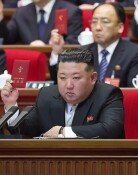Ministry of Commerce Sends Spam Mail
Ministry of Commerce Sends Spam Mail
Posted August. 30, 2007 07:59,
The Ministry of Commerce, Industry, and Energy sent e-mail promoting the second inter-Korean summit scheduled for October and criticizing the Grand National Party to tens of thousands people yesterday.
The content of the email is not related to the ministry and it was also sent to those who did not agree to receive e-mail from it, giving rise to the controversy that it violated the political neutrality obligation of public officials.
It was confirmed yesterday that the ministry sent its 40,000-plus policy customers the e-mail titled News on the second inter-Korean summit.
The e-mail, marked as coming from the Ministry of Commerce, Industry and Energy automatically transfers readers to a posting titled, The Grand National Party Should Think About Koreas Future: the Immature Demand of Delaying the Summit.
Cheong Wa Dae censors the Grand National Party in the posting, saying, The GNP demands that the administration hand over the summit to the next administration. That is an attempt to sway the sitting presidents authority when the presidential election is yet to be held, which is an arrogant idea.
An owner of a small trading firm sent an email to the Dong-A Ilbo, which says, It has nothing to do with the ministrys duty to violate political neutrality and send such spam mail. I feel stressed out as taxpayers money is wasted like this.
In response, a policy PR official at the ministry said, There was talk that each government ministry needs to do some PR on the purpose of the inter-Korean summit in a recent meeting of the summit preparation committee. It seems that there was some miscommunication on that idea with the working-level officials of the ministry. There was no intention to attack a particular party.
The Policy Customer Relationship Management (PCRM) service, which the government uses to provide policy information through e-mail, started in 2004 and is led by the Korean Overseas Information Service.
Government agencies have attracted related industry insiders, academics, and general public members as their policy customers through various events and cooperation with related organizations.
However, the e-mail was sent to many who were not signed to join the policy customer pool.
jarrett@donga.com







